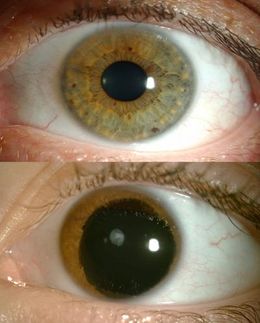Prosensa Advances Three Exon Skipping Candidates for Duchenne Muscular Dystrophy into the Next Development Stage
Prosensa to receive up to £27M in development and milestone payments from GSK
Prosensa announced that they have agreed with GlaxoSmithKline (GSK) to advance three further exon skipping compounds (PRO044, PRO045 and PRO053) into the next development stage under their ongoing collaboration relationship in Duchenne muscular dystrophy (DMD).
The two companies have agreed upon the development terms for the exon 44 skipping programme, which sees GSK providing additional support for PRO044, currently in Phase I/II. Prosensa and GSK will also work together on a preclinical and clinical development program for PRO045 and PRO053, which are expected to enter clinical trials in the first half of 2012. The three candidates PRO044, PRO045 and PRO053 are compounds designed to skip exons 44, 45 and 53 respectively, in the dystrophin gene, each targeting different subpopulations of DMD patients.
Under the collaboration agreement, Prosensa is eligible for milestone payments and development funding payments which could total up to £27M, depending upon the course and outcome of the clinical development for these programs. Prosensa and GSK will also embark on a natural history study that will provide a better understanding of the disease course of DMD.
Under the terms of the alliance established in 2009, GSK has an exclusive option to licence PRO044 and an option to licence one of either PRO045 or PRO053 for later stage development and commercialisation, with Prosensa retaining certain limited commercialisation rights. For the compound not selected by GSK, Prosensa will retain full development and commercialisation rights.
“In addition to the progress made with our lead compound targeting exon 51 (GSK2402968/PRO051) which is currently being investigated in a global phase III study, the advancement of these three additional candidates underlines the commitment of both parties to develop safe and effective compounds for the treatment of DMD,” commented Hans Schikan, Chief Executive Officer of Prosensa, adding, “The advancement of compounds targeting exons 44, 45 and 53 will allow us to use our exon skipping approach for the benefit of additional patients affected by this rare, progressive disease. It illustrates our ambition to help as many patients as soon as possible.”
Most read news
Other news from the department research and development

Get the life science industry in your inbox
By submitting this form you agree that LUMITOS AG will send you the newsletter(s) selected above by email. Your data will not be passed on to third parties. Your data will be stored and processed in accordance with our data protection regulations. LUMITOS may contact you by email for the purpose of advertising or market and opinion surveys. You can revoke your consent at any time without giving reasons to LUMITOS AG, Ernst-Augustin-Str. 2, 12489 Berlin, Germany or by e-mail at revoke@lumitos.com with effect for the future. In addition, each email contains a link to unsubscribe from the corresponding newsletter.




















































